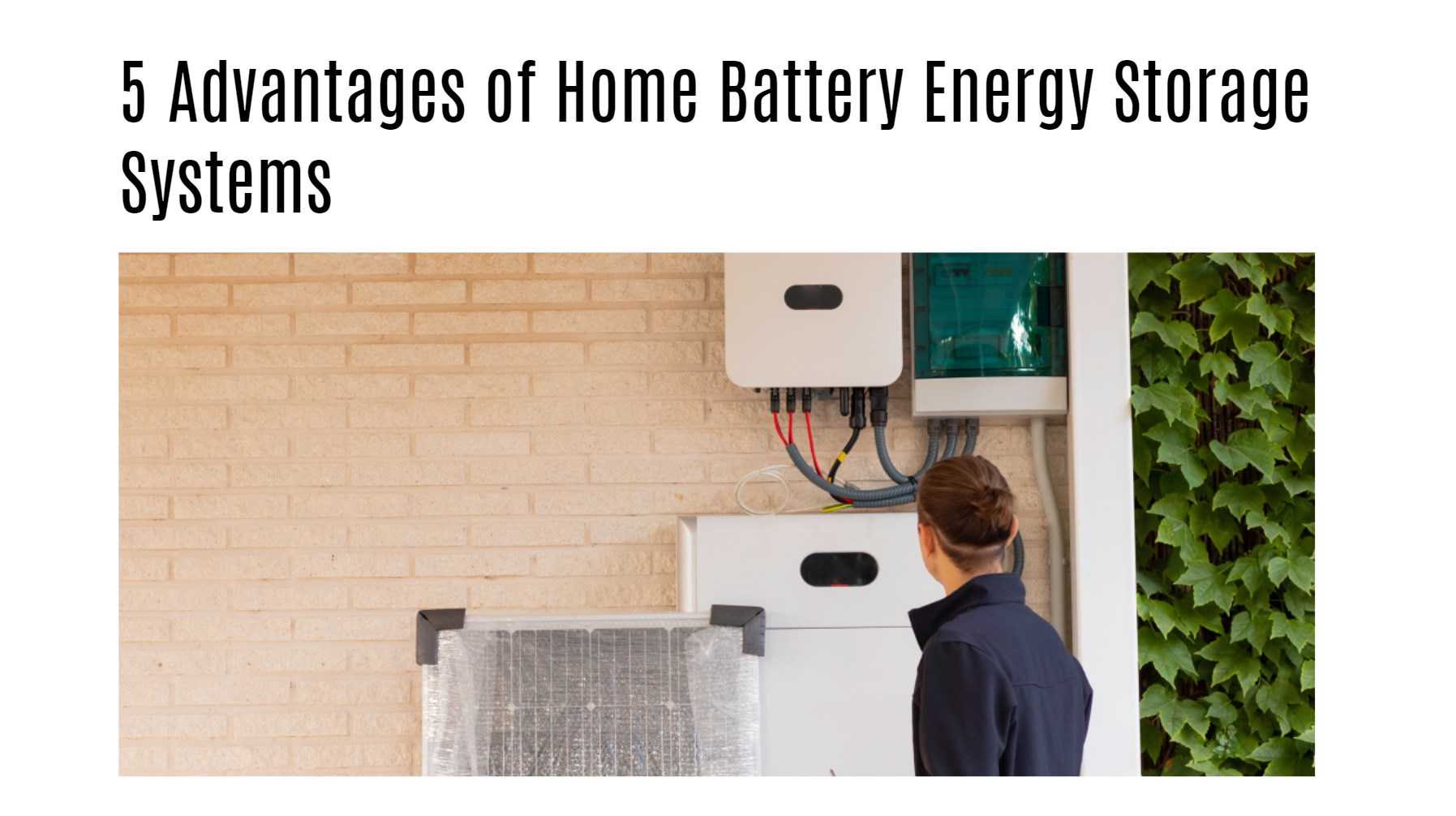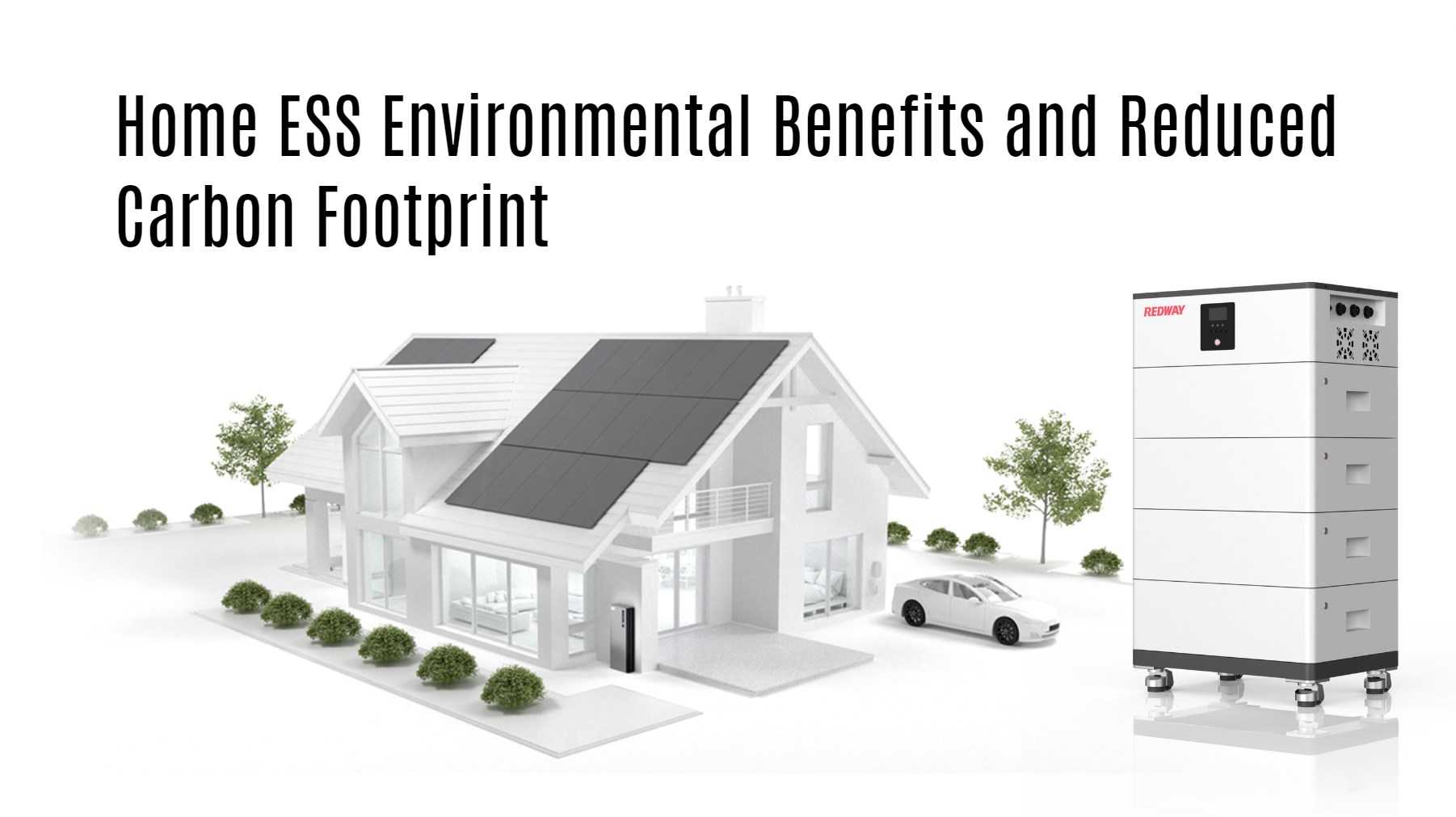In today’s world, where sustainability and efficiency are paramount, homeowners are increasingly turning to home battery energy storage systems. These innovative systems not only offer a way to save money and reduce carbon footprints but also ensure energy independence and resilience in the face of power outages and natural disasters. Let’s delve into the five key advantages of installing a home battery energy storage system in your household.
Cost Savings and Energy Independence
The era of smart home energy is here, with home battery systems leading the charge. These systems provide:
- Cost Savings: By storing excess solar energy, homeowners can use it during peak times or at night, circumventing higher electricity rates and reducing grid reliance.
- Energy Independence: Maximizing the use of clean, renewable solar power decreases dependence on fossil fuels, aiding the fight against climate change.
- Enhanced Resilience: A reliable backup power source offers peace of mind during unexpected outages, particularly in areas susceptible to severe weather or natural disasters.
Backup Power during Outages
The benefits of uninterrupted power during outages include:
Wholesale lithium golf cart batteries with 10-year life? Check here.
- Immediate Backup Power: Home battery systems ensure that lights stay on, devices remain charged, and essential appliances keep running during grid failures.
- Long-Term Savings: Utilizing stored electricity during peak demand times leads to substantial utility bill savings over time.
- Environmental Impact: These systems reduce the carbon footprint by providing an eco-friendly alternative to fossil fuel-based generators.
Environmental Benefits and Reduced Carbon Footprint
Home battery energy storage systems offer a pathway to a greener future through:
- Optimized Clean Energy Use: Storing excess electricity from renewables, like solar panels, maximizes clean energy use and minimizes reliance on fossil fuels.
- Off-Peak Storage for Efficiency: Storing energy during low-demand periods alleviates grid strain during peak hours, reducing the necessity for non-renewable power plants.
- Emission Reduction: By utilizing battery-stored power instead of grid electricity during high-demand periods, homeowners decrease greenhouse gas emissions and contribute to a more stable electric grid.
Flexibility and Control over Energy Usage
Home battery systems offer unparalleled flexibility and control:
Want OEM lithium forklift batteries at wholesale prices? Check here.
- Smart Cost Savings: Homeowners can store energy when rates are low and use it during peak hours, optimizing electricity costs.
- Clean Energy on Demand: The integration with renewable sources enables homeowners to generate sustainable power as per their needs.
- Load Shifting: Homeowners can shift their electricity usage to times when renewable energy is abundant, fostering sustainable practices.
Increased Resilience in the Face of Natural Disasters
Home battery systems enhance resilience by:
- Providing Independent Power: Acting as a reliable backup during natural disasters, these systems ensure access to essential power when the grid is down.
- Supporting Community Recovery: Reducing local infrastructure strain aids community resilience and recovery efforts post-disaster.
- Sustainable Emergency Power: Utilizing clean energy during emergencies aligns with sustainability efforts, offering an environmentally friendly backup power solution.
Conclusion
Investing in a home battery energy storage system transforms your home into a smarter, greener haven. Beyond just providing backup power, these systems are a testament to the commitment to sustainability, efficiency, and independence from the traditional energy grid. With the advent of such technology, homeowners are not just saving on costs but are also contributing to a more resilient and sustainable future. Embrace the change and step into the future of home energy with a home battery energy storage system.







